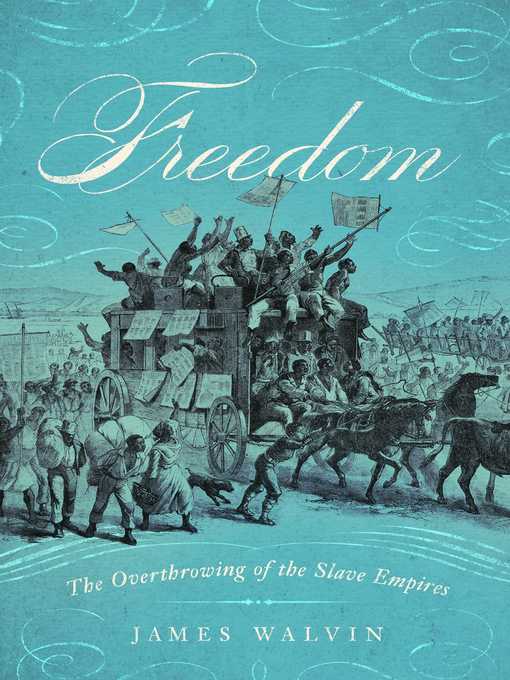
Freedom
کتاب های مرتبط
- اطلاعات
- نقد و بررسی
- دیدگاه کاربران
نقد و بررسی

July 15, 2019
In this lucid work, historian Walvin focuses on the rapid decline of slavery in the Western world. Toward the end of the 18th century, European nations and their colonies in the Americas were strongly committed to this intensely profitable institution, but less than a century later it had become widely condemned and outlawed in the U.S. and Britain. Walvin’s goal is to depict how and why this situation changed so rapidly; while he is careful to stress the political and legislative initiatives involved, he emphasizes that “slaves were the critical element in securing their own freedom.” He asserts that traumatized Africans, who stepped off slave ships transformed in legal terms from human beings into objects of property, were committed to resisting enslavement in any way they could, making the history of slavery into “a complex story of slave defiance.” Walvin identifies the Haitian slave insurrection of 1791–1804 as having a “tsunami-like” effect on the foundations of colonial slavery and spotlights lesser-known insurrections and many smaller acts of daily resistance practiced by enslaved people in the United States, the Caribbean, and Brazil. This account, which illuminates a topic that remains widely misunderstood, merits a wide readership.

July 15, 2019
A British historian charts the rise and collapse of the slave empires of Europe's New World colonies. There is irony in the fact that Toussaint L'Ouverture, the leader of the slave revolt that established the free state of Haiti, was himself an owner of slaves. The revolt that he led resulted in a wholesale replacement of characters but not of social structures, as former lieutenants became estate holders and former slaves became forced laborers--and sometimes even slaves again. So observes Walvin (Sugar: The World Corrupted: From Slavery to Obesity, 2018, etc.), a scholar who has done extensive work on the Caribbean slave economy. Here, he widens his view to embrace enslavement throughout North and South America, with all its grim specifics--for instance, he writes that "Africans often spent longer on board a slave ship anchored off the coast of Africa than in crossing the Atlantic," those ships serving as horrific floating prisons until they were full enough for the captain to make a profitable trip across the ocean. Brazil is an important case study. As the author notes, 2.8 million Africans embarked as slaves from Angola alone, most bound for Brazil, joining millions of other Africans, and there they took roles in every sector of society. As with L'Ouverture, there were bewildering intersections: "most perplexing of all to modern eyes, we know of Brazilian slaves who themselves owned slaves." Walvin also documents Britons who never set foot in slaveholding territories but yet owned slaves at long distance. For all its puzzles, the slave economy lasted for three centuries but then disappeared over the course of a few decades as abolitionist and liberation movements arose in the 19th century. Even so, notes the author in closing, slavery has never disappeared. In fact, he observes, given the lamentably massive number of impoverished people around the world, "present-day slaves cost only a fraction of the price of slaves bought in the US South before 1860." A solid contribution to studies of slavery in the Americas, providing useful rejoinders to other more comprehensive accounts.
COPYRIGHT(2019) Kirkus Reviews, ALL RIGHTS RESERVED.

September 1, 2019
There are many books on slavery, yet a key question remains: How did an institution so fundamentally intertwined with the economies of three continents for 400 years disappear within a relatively short time? Walvin notes the influence in both England and North America of Quakers like Anthony Benezet, Thomas Clarkson, and John Woolman, and the importance of a robust press in spreading anti-slavery arguments. But the most important factor he discusses is how the testimony of former slaves was instrumental in making the moral case against slavery. It was ex-slave Olaudah Equiano who revealed the notorious case of the Zong, a British slave ship whose crew murdered 132 captured Africans for insurance money. First-person accounts of the horrors of slavery and slave ships written by former slaves provided the undeniable evidence of slavery's evils and played a crucial role in ending Britain's slave trade. Inspired by the French and American Revolutions, slaves and free people of color claimed human rights for themselves. Walvin makes it abundantly clear that slaves actively pursued their liberation, rather than passively accepting their fate.(Reprinted with permission of Booklist, copyright 2019, American Library Association.)

























دیدگاه کاربران